|
Audio Version
Getting your Trinity Audio player ready...
|
Many environmentalists started caring about the environment after discovering its beauty through their travel experiences, and their passion to protect it became fierce. I guess this is not an unusual story, and many nature lovers can relate, me included.
I’ve said it so many times in my publications: the purpose of Planeta Sana website is not to be perfect. It’s about adjusting and living a more sustainable and eco-friendly lifestyle (including travel), taking into account our health challenges and / or disabling issues.
“The purpose of this site is not to teach lessons. Like you, I am learning and most of all I try to come to terms with my own limitations. My wish is to provide you with all the information and resources at my disposal to help you in your own process.“
Extract of Planeta Sana About Page
I actually don’t consider myself a pure environmentalist, because of my imperfections. However I want to provide information about how to protect our health and that of the environment, so that people can make informed decisions about their lifestyle and travels.
Environmentalist definition
These are actually the two definitions for “environmentalist” :
Or
I guess that’s what I am trying to do… especially when I ask myself: what’s the most environmentally-friendly way to travel?
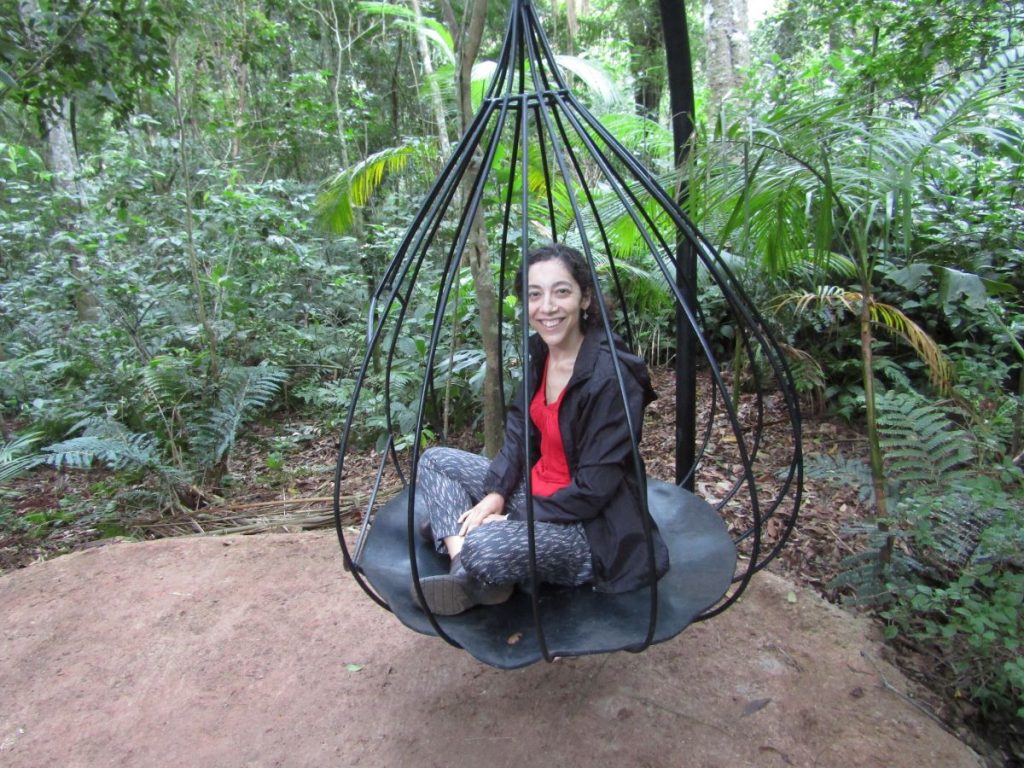
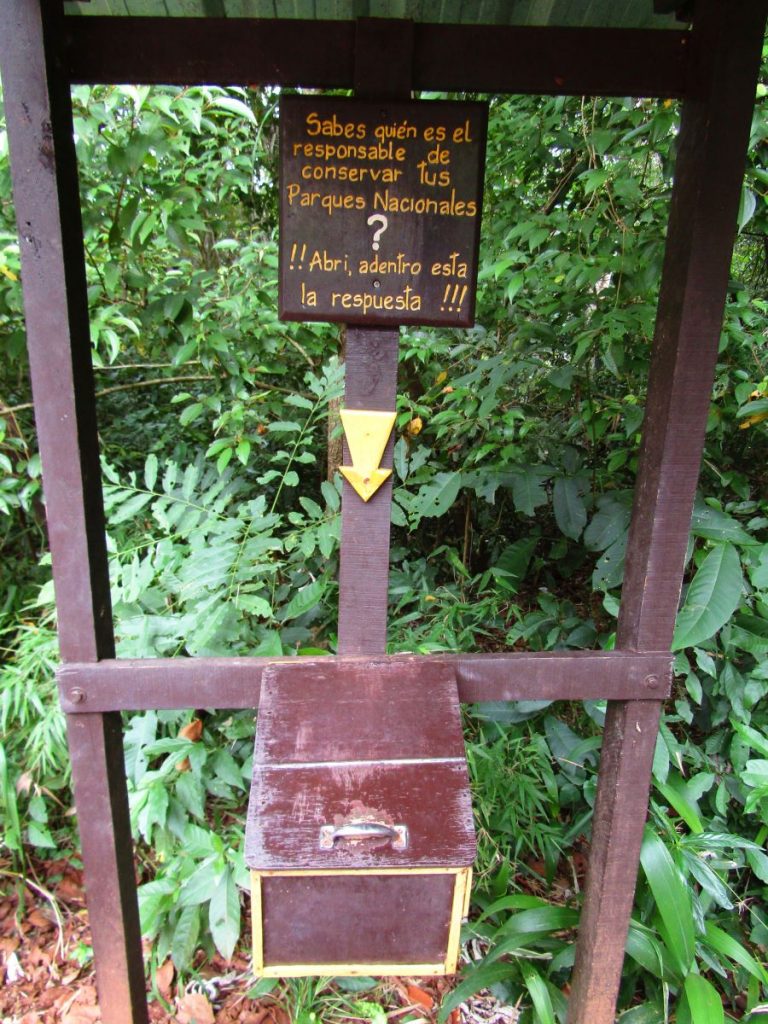
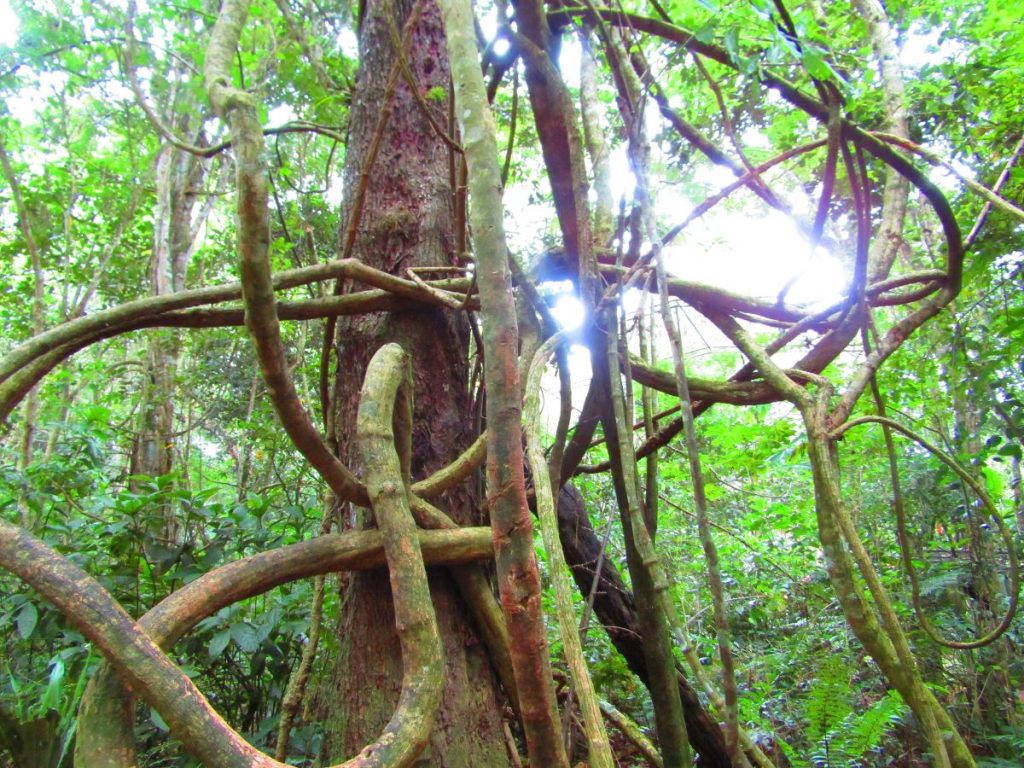
Right now, I just want to address this set of articles to both ends of the spectrum: the pure environmentalists, as well as those who still believe that man-made climate change is a scam, i.e. the climate sceptic, who never ask themselves: why is sustainable travel important?
My article follows my values: looking at the environment with a more balanced vision.

I say it all the time: nothing is black or white. There are many shades of grey in this life. And people are building an ideology around ecology instead of being practical and looking at facts.
The usual pure environmentalists’ retort:
I already know what they will say next: You’re an hypocrite who is just looking for excuses and if you look at the facts, you should take extreme measures, ‘cause the planet is burning and we have no more time to act in a mild or moderate way.
While I agree we have no more time, it’s not by looking at the problems without empathy and understanding that people will suddenly follow your lead and live an extreme green lifestyle that they cannot comply with, even if they support the idea in theory.
If we want more support for climate action, we should try to gather people in a joyful way, rather than divide them in frustration. Everybody can do something at their level. And to me, that’s what matters the most. At least if we’re looking for an everlasting impact.

After looking at my own reasons, I have gathered some food for thought as to why we can still care for the environment and travel, if done in a balanced and responsible way.
Travel environmental impact: the hypocrisy behind travelling and taking planes:
Taking a plane is probably the most “problematic” issue if you care for the environment… There’s often a correlation made by the environmentalists between air travel and climate change.
That’s why I want to start with this important topic….
Do environmentalists travel? Are they still taking a plane? They must be out of their mind! Flygskam: shame on you!
I have read a lot about carbon footprint and aviation, as the main question is why is travelling damaging?
It is extremely bad for the environment on an individual level, and makes one’s carbon footprint explode. When you monitor your carbon footprint, and take steps such as owning no car, taking public transport, cycling, and taking the train to visit friends and family, your carbon footprint would be very low, as it makes one lifestyle quite eco-friendly.
So why do some travel environmentalists continue to fly? (or excuses as the pure environmentalists would say).
Colonialism and globalisation:
Many people, environmentalists included, have roots from outside Europe. And their partner can be from a different region too. So if we want to visit family, there’s no other way to spend time with them. The train doesn’t go everywhere…
And no, Thomas Wagner, you can’t use Skype everywhere!
Imagine a dear member of your family passes away, You can’t stream the ceremony… The Internet isn’t good everywhere. It’s already hard to go through the loss of a loved one, let alone not being able to be there to say goodbye… This happened to my mother who couldn’t go to her parents’ funeral.

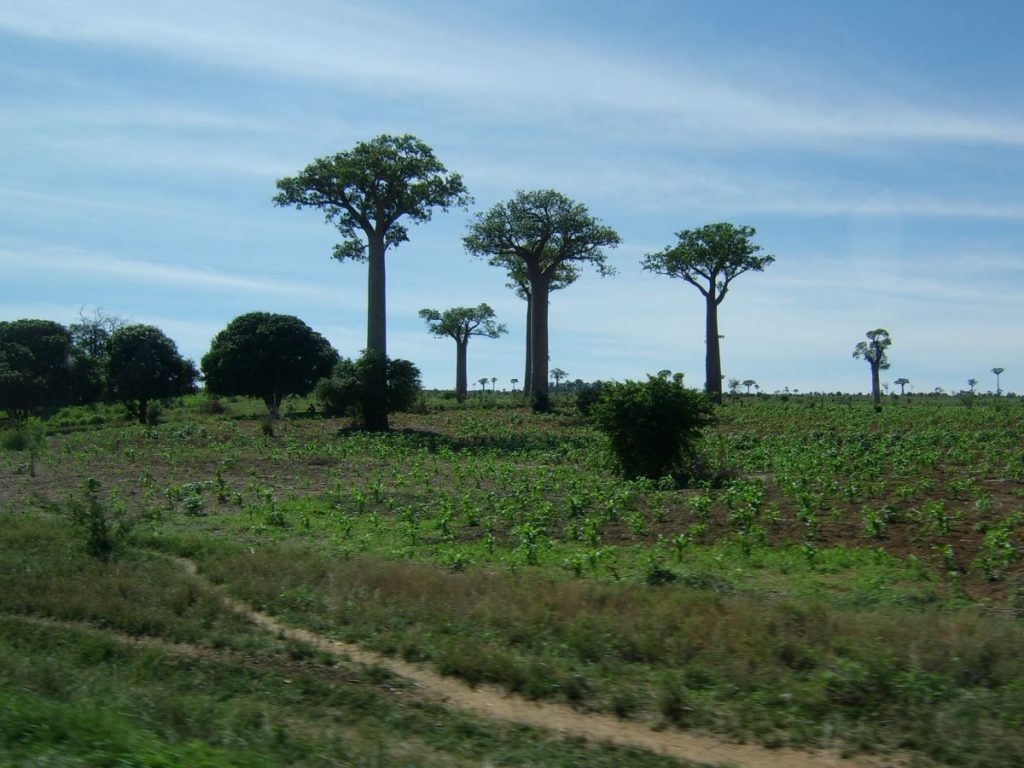

You don’t have the luxury to see your grandparents more than a few months in an entire lifetime because they’re too far. When you see them grow old and have the opportunity to visit, believe me: you go! Every trip you take, you know it may be the last chance you have to spend time with them….
We also feel attracted to the country we have roots from. We want to know what it looks like. It’s part of our identity and it’s only human to feel attracted to those destinations that are part of us. Even if we don’t have any family members there anymore.
Visiting family and discovering my roots in La Reunion.
If people didn’t have roots from ex colonies, they might have never needed to travel, at least for those reasons.
Living on an island: when air travel is the only option
Not every country has ferry services, and if they do, they are not always easy to get to, unless you have a car.
Even with a car, the ferry is not always an option, because of the time involved. Most working people only have a certain number of days off per year. And if you live on an island and have to travel for work or to visit family, it’s not so easy to escape the plane.
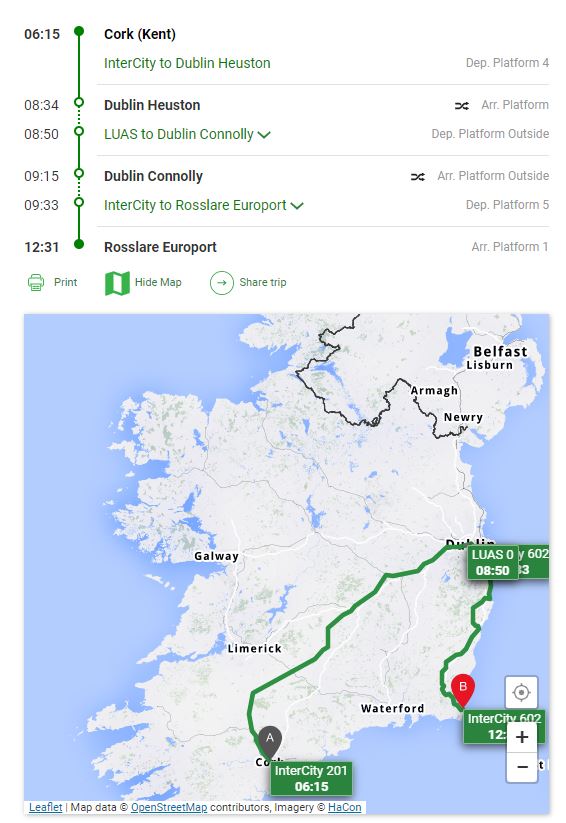
Finally, is the ferry in combination with the car really better than the plane?
According to this calculator, a trip in economy class on a direct flight from Cork to Toulouse emits 0.18 tonnes of CO2.
If you take a ferry with a car, the entire journey from Rosslare to Cherbourg only emits 0.078 tonnes of CO2.
But then you have to add the car’s CO2 footprint. From Cork to Toulouse (via Rosslare and Cherbourg to get to the ferry), the total distance emits 0.173 tonnes of CO2. On this trip, I put my car on a train from Paris to Toulouse. Unfortunately, the service was discontinued in 2020…
So basically, there is no difference if you travel alone, although I selected a small car that emits less, the amount of carbon emissions is almost the same.
Then say Madagascar, there is no ferry at all.
As of Curaçao, the only way to get there by the sea is to take a cruise. The shortest cruise from the Americas is from Miami or Fort Lauderdale, and takes 8 days. It emits a total of 2.37 metric tons of CO2 (the calculator also takes into account the footprint in terms of accommodation and food, as well as entertainment on board).
When lack of opportunities and feeling like a foreigner lead to expatriation:
This usually applies to people with roots of ex colonies, but not only. Many young people in Spain had no other choice than to go to the Nordic countries in order to find a job…

I’ve also talked about racism in another article. It’s not easy to be accepted as we are with a different skin tone, hair texture or even ability. Some countries are more open than others and that’s why people sometimes become expats. They are tired of having no opportunities because of their names or background, and they look for a better life.

So what do you expect from all those expats? That they won’t go home to visit friends and family? That they don’t meet people like them? They end up with friends and family spread out around the world that they wouldn’t have met if they weren’t expats. Some are easily reachable by train, some aren’t and the plane is the only option to visit them.
The promise of employment in the travel industry sector:
In the 90s, it was meant to be a flourishing industry with a great future.
Some schools already warned about the negative impacts of tourism though, because of massification, and have worked very hard since then on sustainable travel.
Many countries woke up too late after many years of damaging their land with massive urbanisation, for easy tourism money. But some countries realised we valued their nature. So they decided to protect it, seeing the benefits of it through the green tourist trend, protecting their forests, wildlife and biodiversity in a very smart way, like Costa Rica did.
Unfortunately it’s more the exception than the rule, and countries like Spain have destroyed their seaside to make money, killing the biodiversity of their Posidonia as explained in the below video…
Although we have exceptions, as I’ve explained in my article about Lanzarote.
Benefits of travel:
Conservationist vs Environmentalist: Sustainable Travel can help conservation.
For those who do it well, tourism can help protect species that would have otherwise disappeared. We saw it during the pandemic. Many people in Africa killed animals through poaching to make a living, as tourism had completely stopped, an example is mentioned in this article of the Guardian… Thailand had a similar issue.
As for local tourism, it’s hardly feasible in some regions of the world, like developing countries in Africa, Asia or Latin America. People don’t have money to eat, so forget about travel! I agree tourism should not be the only option for a healthy economy, but we shouldn’t give it up completely, as a diversified economy is always best. And we need a plane or a boat to travel to those destinations…

Travel and the environmentalist mindset:
Travel usually makes people less materialistic. Travellers prefer to spend their money on experiences and meeting people from different backgrounds. People become more tolerant as a result, and I believe there would be fewer wars today if travelling was mandatory, as a major experience for the young (as long as they are really immersed in the culture.) They can also go by train or bus, if they stay on their continent. As for sailing options? They’re quite limited… The plane can also be avoided when you’re young, fit and have enough time!
If you don’t travel, your stuff does… unless you shop local.
That’s one of the things I like the most about the kind of travellers who live out of a suitcase.
Many of them have little or no interest in owning the type of stuff that pollutes our planet. This “stuff” travels more than us. It’s usually produced elsewhere, shipped from the other side of the planet thanks to a globalised economy. So if we want to talk about hypocrisy, we need to also look at that side. I’m not saying it’s better to travel than to make an item travel. I’m just saying travel is part of our globalised system and some travellers have a lower footprint in that aspect, because of their mindset.
Environmentalists travel to understand other cultures:
Being able to communicate is one of the most beautiful gifts someone can have! The best way to learn a language is to live in the country to be totally immersed and practice! It’s also a very effective way to understand why other people think differently through their idiomatic expressions and choice of words.




Visiting family in the Netherlands.
Some expressions can’t be translated. For instance in Spanish we say “me cuesta”. It literally means, it costs me (like for money). We want to emphasise the effort: how tough, and hard it is. No British expression can replace this. And it just opens your mind in a very delightful way!
Travelling for love
Last but not least, one of the positive effects of travel is definitely to bring people who have fallen in love together again.
When I moved to Spain, I used to watch Spanish TV to improve my understanding. One of the programmes I watched is called Españoles en el mundo, which interviews Spanish expats all over the world. When asked why they moved so far away from their family, most say they fell in love with someone.
A relationship is not easy. Just because you fall in love with someone does not mean you immediately move in together in another country. A long-distance relationship is usually the first step, involving a few weekends and holidays here and there until the decision is made to live together.
Then the couple lives either in the land of one or the other. Sometimes they also decide to live in the country where they met or in a neutral country where they both feel comfortable or where they can find job opportunities. Does this mean that the other person has to give up visiting their parents, siblings and family, friends and even pets? No, of course not! Most of these people can’t afford to travel very often, but they at least try every other year. My mother couldn’t afford it and didn’t travel for 25 years… Is that the biggest travel footprint? No, I don’t think so. And love is definitely a good reason to travel.
Is travelling bad for the environment? Are those only excuses to keep trashing the planet?
I agree, taking a plane for 7.7 billion people is not sustainable. But I doubt we will be 7.7 billion wanting to take a plane. Some people are scared of flying, some don’t like to go abroad, some have other priorities, some find it too hard physically (like me, long haul flights become almost impossible with my chronic pain)…
Right now, air traffic accounts for 3 to 4%* of CO2 emissions, and we have to add other harmful gases that have not been accounted for. It’s still pretty low compared to the fashion industry (10%* according to weforum) or food waste (6%* according to our world in data) for example, and it’s similar to the digital industry (3.5%* in 2020, reaching 5.5%* in 2025 according to this article in the Guardian). But if it stays as it is, it’s not the biggest threat.
*depending on the source and the way it’s calculated, it can vary and sometimes these numbers are only estimates due to the complexity of the task.
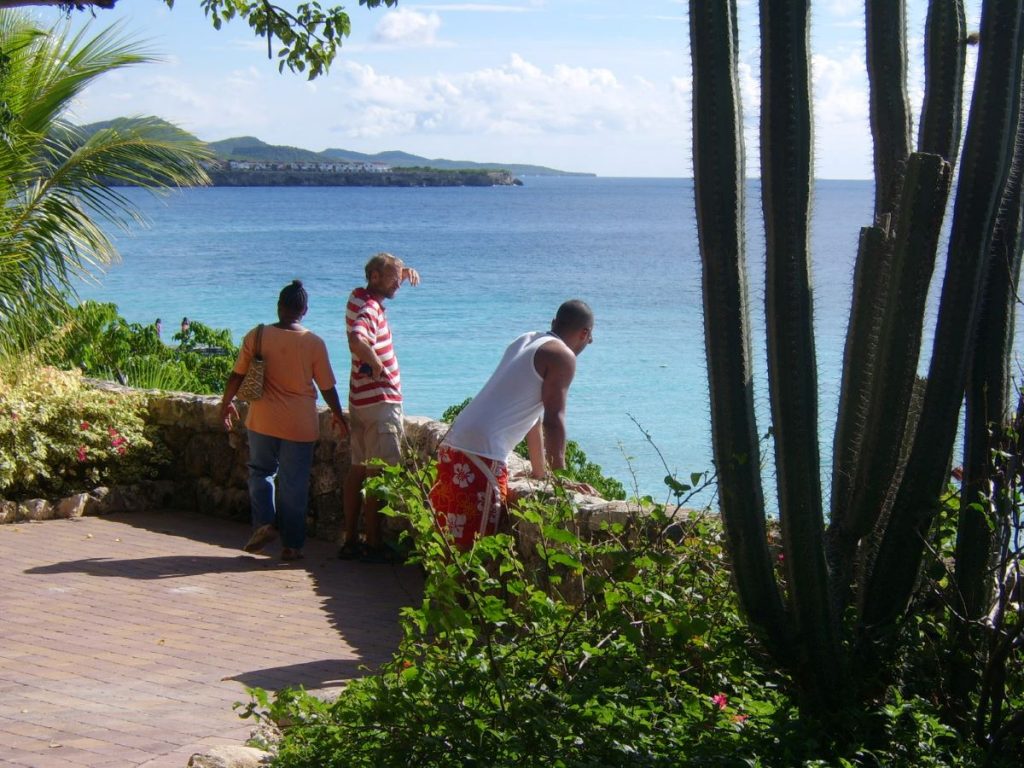
What can environmentalists do to prevent travel from killing the planet? Can travel and environmental challenges work hand in hand?
Travel reasonably: ask yourself what’s the most environmentally friendly way to travel adapting it to your physical abilities.
We should not increase the number of planes. As a matter of fact, we should reduce it and practise revenue (also called yield) management heavily, to ensure no plane ever travels empty, as it sometimes happens…
We should also replace short haul flights with frequent and affordable high speed trains. Or even comfortable and safe slow night trains. Let’s not forget that some people take flights because they can’t handle the physical pain of sitting in a bus for hours. We also criticise the elderly people for cruising but many do it because it’s more accessible for their disability issues. So let’s not forget about those minorities.

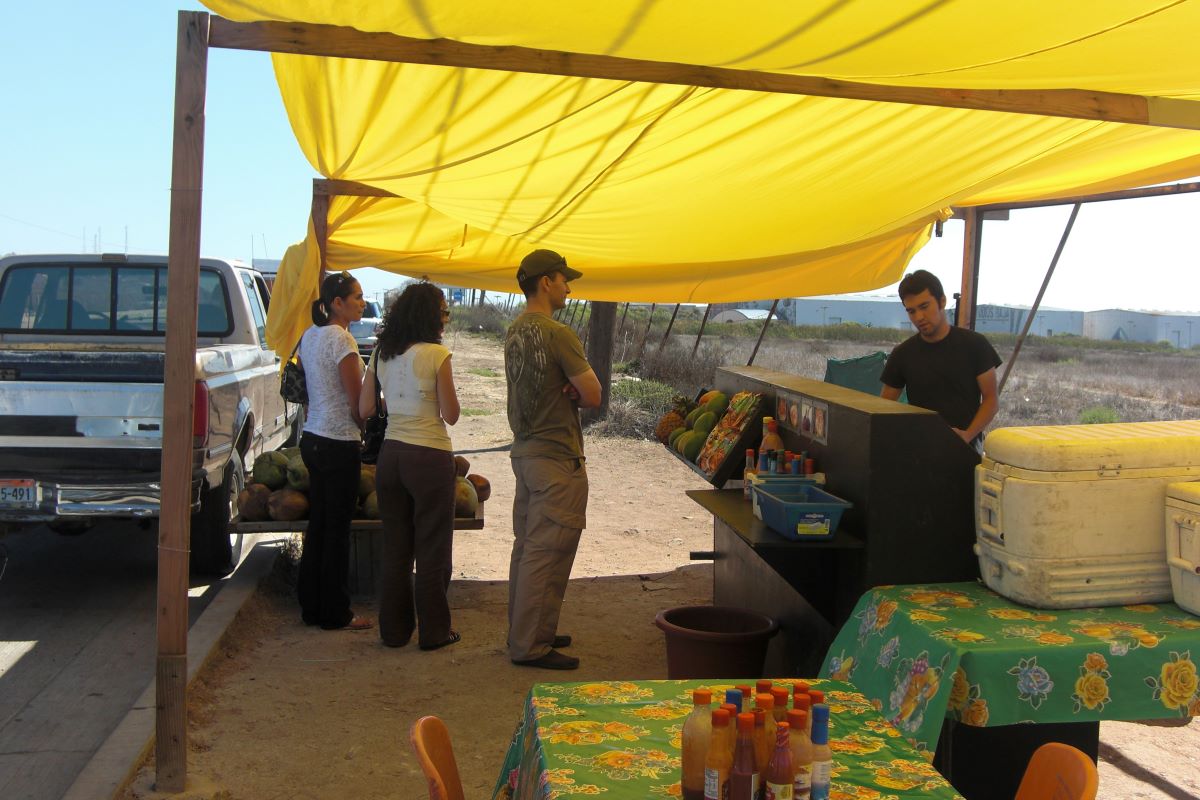

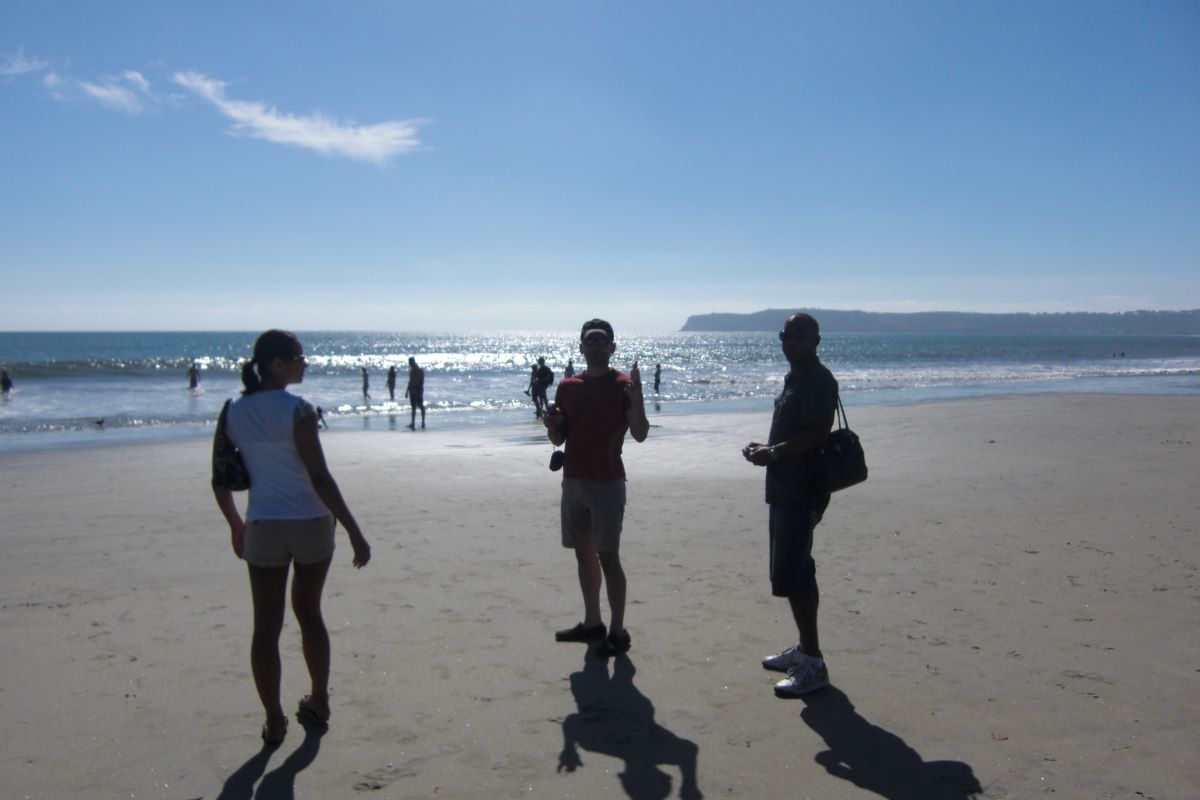
Regulations for environmental travel policy:
If cruises are so bad for the environment, why do our governments do nothing to prevent their pollution? Docking is one example that leads to pollution and that would be prevented if we had the right equipment, i.e. shore power. And if we don’t? Well, maybe we shouldn’t have authorised cruise ships in the first place.
If fossil fuels are bad for the environment, why are the biggest polluters, like airlines, exempt from taxes on petrol? It’s ridiculous. We need to hold our governments accountable so that this money can be used towards sustainability solutions.




Money won’t save all the problems related to contamination and loss of biodiversity though. So our governments also need to restrict activities that damage the environment, as mentioned earlier with airport traffic.
Same thing with cruise ships. They shouldn’t be allowed to go everywhere. And maybe it’s time to forbid mega-ships, and implement quotas.
Is travel bad for the environment? Beware of technology, greenwashing, and carbon offsetting…
Many airlines will tell you nice stories… They say there are solutions so we can keep flying in the exact same way as we are doing today… This is a big lie that I will tell you about in future publications. Even if they use SAF (sustainable aviation fuels), plant trees on your behalf to “compensate”, use hydrogen, etc, the fact is that one return flight from Paris to New York emits as much as one person should emit for the entire year (about 2 tons of CO2*, an average European currently emits about 8 tons*) if we want to drop our emissions drastically enough to reach the Paris agreement level of 1.5ºC global warming. As a traveller, I hope technology can save aviation! But this is just wishful thinking. Not what is happening right now. Hydrogen can’t be made without fossil fuels, the technology isn’t there yet and we’re not sure it will ever be. We can’t keep relying on technology for our hopes of lower emissions. We need to be honest and reasonable first.
*depending on the source and the way it’s calculated
Flying and the rich:
We should keep the use of the ‘business’ class to a bare minimum and maybe only to people with health issues, as mentioned earlier.
And we should limit private jets. I know: I’m becoming a bit extreme here. But the reality is that those rich and famous people travel alone (maybe for security reasons, scared to mingle with people like us) in their private jets, and explode the carbon footprint for everyone else. They should at least fill up their planes with other people of their class!
We talk a lot about their CO2 emissions due to flying jets, but did you know that their yacht has actually a bigger impact? We don’t talk much about it, maybe because we enjoy going for a walk around harbours with nice yachts… Now we’re a bit hypocritical too…
Space travel and climate change:
Those are the same people who travel into space, with a carbon footprint equal to one person’s lifetime emissions, in a flight lasting less than an hour. This is nuts! Those rich people are the most dangerous for the climate and we need to let them know of their abusive behaviour and how space travel and the environment are incompatible. They also need to ask themselves: how does this kind of travel affect the environment?
Otherwise people will never be willing to make any kind of sacrifice when they know their level of damage is so low in comparison to the elite. That’s why a lot of environmentalists are so focused on “climate justice” now.
Publicity matters as it drives desire…
We have been watching Hollywood movies with famous people in their private jets, enjoying their yachts, driving their SUVs to ski the slopes, and so on… It fixes the idea in our general consciousness that this was the definition of an out-of-the-ordinary travel experience. When paradise can actually be found in so many different ways, in nature, by a lake surrounded by birds and biodiversity, 30 minutes from home…
So we should promote internal destinations accessible by public transport so that people have an opportunity to experience their own country for a long weekend instead of going to Venice or Barcelona with a low-cost airline.
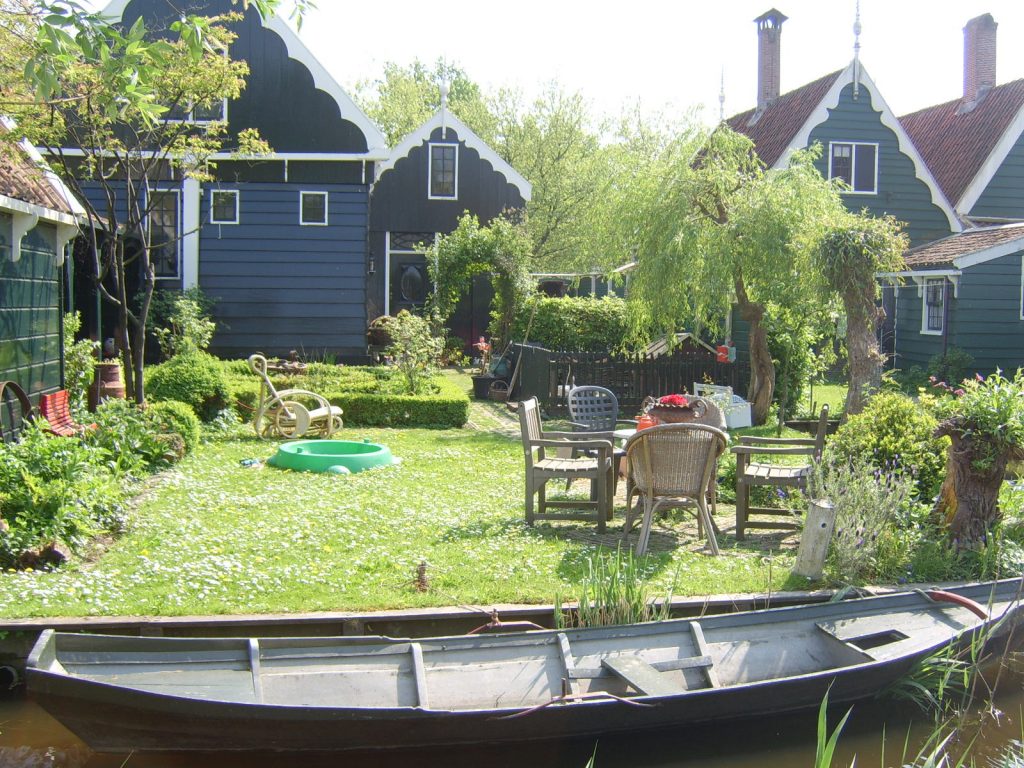
I’m not saying people shouldn’t come to Barcelona! But if they do, it should be worth the carbon footprint. Stay for at least a whole week. There are many things to visit around Barcelona, in Catalunya: culture and nature!
Slow travel and diversification:
Finally, we should promote slow travel, with longer stays to encourage staying off the beaten tracks. But before that, assess the possibility of welcoming tourists. As not every village will have the capacity for them, in terms of accommodation, transportation, waste management, water or electricity.
Again, we accuse people who take a plane to remote areas of the planet of being selfish and tell them they should be happy staying a few kilometers from their house on a nearby beach or river. Unfortunately, you won’t save the planet simply by staying at your campsite 30 km away from home. If tourism pressure is too high, because everybody travels at the same time of the year and in places that already go through a lot of natural stresses like droughts or wildfires, you being there is already a problem.
Am I saying you should not travel at all? No! But don’t oversimplify the solution as to what is or what isn’t a sustainable holiday.
If you can, travel during the low season, in areas that are not suffering stresses, and diversify your types of holidays. Not everything needs to be about the beach or the mountain.





Mengwi and Ubud rich culture, Bali
Travel as a trade-off for a different lifestyle
When travel becomes a passion and a life choice
I know so many people who decided to have no children and travel instead…
It’s a very sensitive topic. But it’s a fact. If I have no children, it’s at least one person fewer, emitting about 9 tons of CO2 a year.. and even if I raise them to be a perfect ecologist, it is still two tons a year minimum.
Those people don’t have the pleasure to have kids, a big family, and travel is what makes them happy. They feel happier when they visit a longlife friend on the other side of the planet, after decades in which they haven’t seen each other.
3 trips in one in the US west coast: leisure, business and visiting friends
They have stars in their eyes when they discover a new culture, new sceneries, new environments, new flavours. Some people even heal from physical or emotional damage after such a travel experience. Who are we to decide what should make us happy in our life? We also have the right to enjoy life the way we design it, as long as we are giving back and have balance in mind.
Environmentalists who travel for a meaningful project:
Personally, I love to discover new places to work on my project Planeta Sana and prospects for businesses who could be a fit for my sustainable and inclusive address book… So yes, once a year I take a long haul flight and another time or two, I take a short or medium-haul. I don’t think I abuse.
I am a travel consultant for business travellers, and big companies send their employees on a plane on a monthly or even weekly basis… In business or first class… for what purpose? Rarely for sustainability, I assure! That kind of frequency can’t continue much longer… because that’s too much. That’s why I always talk about balance.
I hear people say “oh but if everybody had your lifestyle it would be unsustainable.” But that’s the thing. Not everybody wants my lifestyle. Most people prefer to get a mortgage, have 2 or 3 kids, and they can’t travel. They own 2 cars and live far from public transport, so they can afford a big house using lots of land… which can sometimes be bad for the environment too… and costs money… Between parking, petrol, insurance, maintenance. You can’t have everything. And travelling once or twice a year instead of this lifestyle was my choice. And the choice of so many other imperfect environmentalists…
Travelling for work:
Some jobs are sedentary, others require travel.
It is up to us, the workers, to refrain from unnecessary travel. But this is not always easy.
Since 2018, I have decided to not to travel long distance by plane for work because it is bad for my health and that of the planet. However, when I was looking for a job in my field and after several successful interviews, the hiring team decided not to move forward with my application for this reason. If everyone had understood the impact of air travel, and refused it, I would not have had this problem.
But people think about their career before they think about their ecological footprint…
Then there are professions that have to travel no matter what. Let us say an artist who has to perform to become internationally known has to travel and may have to take a plane…
In the book I recently read by Francesc Font on agroecology and regenerative agriculture, entitled Arrelats a la terra, propestes per una agricultura regenerativa, the farmer explains that the carbon footprint of flying is largely offset, when a farmer who specialises in this area teaches other farmers around the world how to avoid pesticides, tillage and chemical fertilisers, as soils become so healthy that they have an enormous capacity to absorb the CO2 we emit. I will elaborate on this in my second article in the Environmental Controversies section on Planet’Mag, so stay tuned.
Travelling without flying:
I have drastically decreased my usage of planes since I have learnt about the damage (I had no idea about it until about a couple of years ago). But I haven’t stopped flying, for all the reasons mentioned earlier. However I know it’s possible to have amazing holidays without flying. Take care, however, of simply saying that flying is bad. Driving on your own for over 1000 km is almost as bad as flying! It actually depends on the type of car, year, etc. But this is just to give you an idea.
You can check for yourself with the carbon footprint calculator at the bottom of the article of World Travel Able blog called “Eco-friendly lifestyle made easy”.
I believe I am realistic. I evaluate the bad and the good and I think travel can still be a force for good if done reasonably. As long as you are willing to make some efforts and reduce your footprint in other areas of your life.
Compensate the travel effects of the environment you generate by choosing a different lifestyle
As mentioned earlier, there are things that generate much more CO2 emissions than travel.
In my case these are the choices I have made to offset the fact that travel is bad for the environment:
- Have no children,
- Eat less meat and dairy products,
- Eat local and organic when I can,
- Avoid plastics and go to zero-waste shops,
- Reduce my water footprint,
- Own no car, as I live in a city,
- In general, rent or borrow the things I need as opposed to buy,
- Rent as opposed to build or buy a new house as it contributes to biodiversity loss,
- Share an apartment as opposed to live on my own,
- Avoid buying new clothes, get mostly second hand and donate or exchange garments,
- When taking a plane, favour direct flights instead of the cheapest options with 3 or 4 transfers, and travel eco rather than business,
- Take a train for short distances, and reduce air travel (check this article : is travelling by train better for the environment? to find out more),
- Use public transport at my destination,
- Use a sunscreen that doesn’t harm marine life,
- When I have to travel for my project or for work, I always combine it with a visit to friends and relatives in the area, and with discovering the place,
- Go to a destination that promotes slow and sustainable travel.
I wrote a piece on my first travel blog World Travel Able about environmentally responsible travel, including tips to the most environmental ways to travel.
There are even some environmentalists who argue that we need to travel to promote a more sustainable lifestyle. Because a conference online can’t help to deliver big changes. While travelling to areas that need the most attention might be a real deal breaker!
More contradictions or what the pure environmentalists will call “cognitive dissonance” can be found in the following series of articles of this new category of Planeta Sana website called “environment controversy”. I will debate several big topics, including food, health, and the green transition technology, so stay tuned!
We’ll discuss how this actually relates to morality and guilt. Which leads us to compete against each other to be the purest and most ethical people, feel better about ourselves and eventually show our superiority, instead of looking at facts and being more practical, gathering imperfect people to actually make more impact…
Read on!


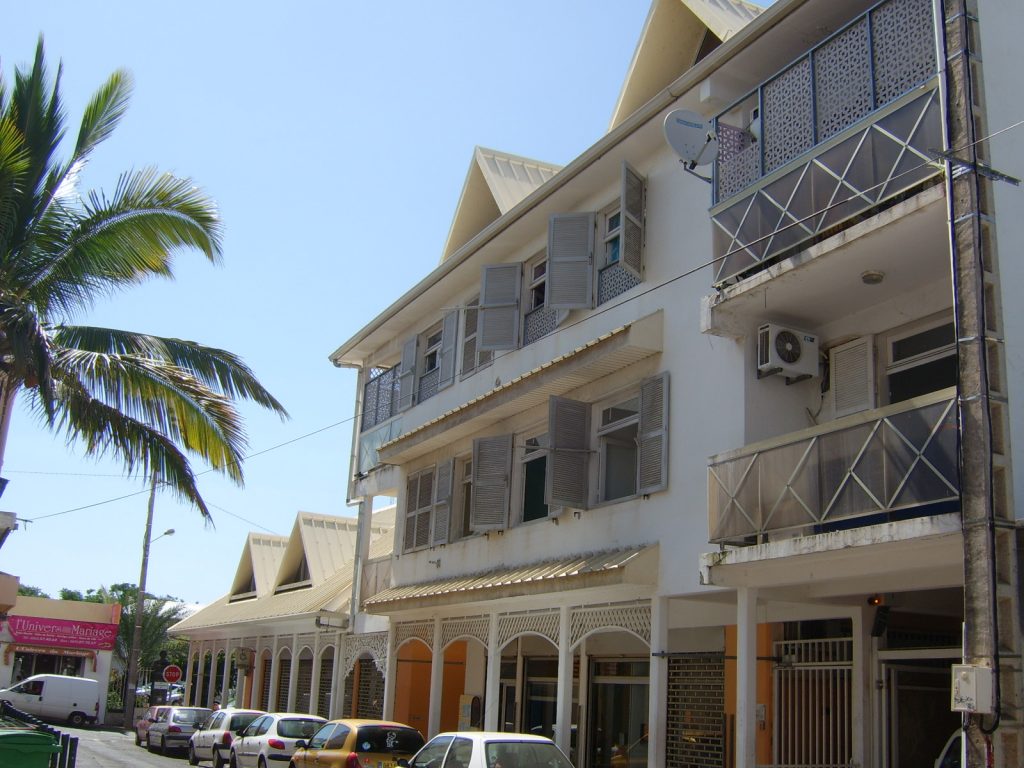








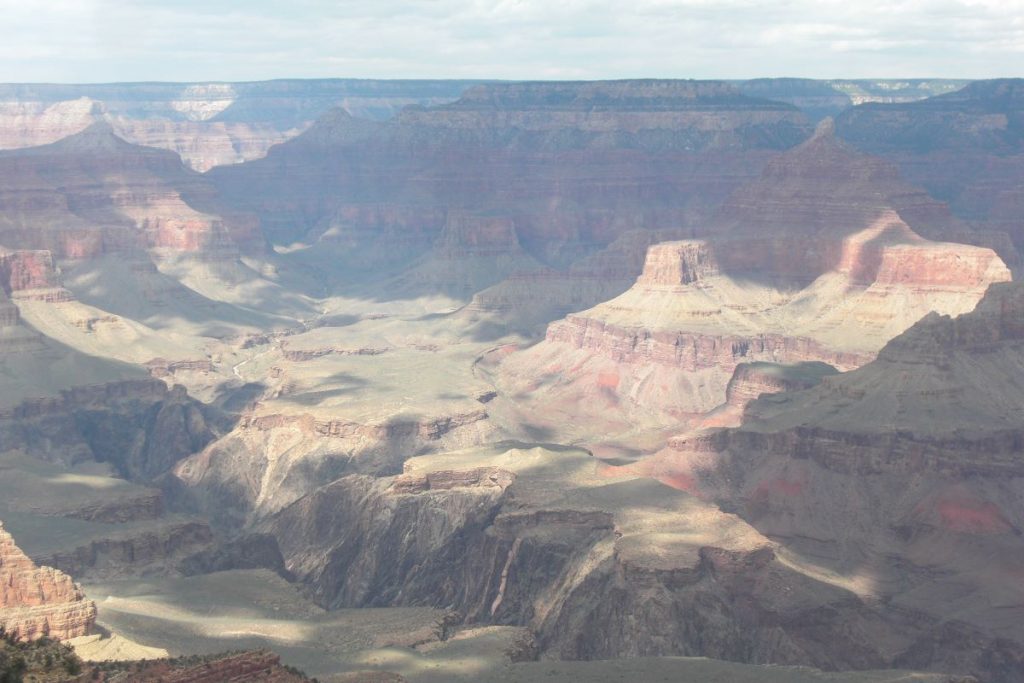
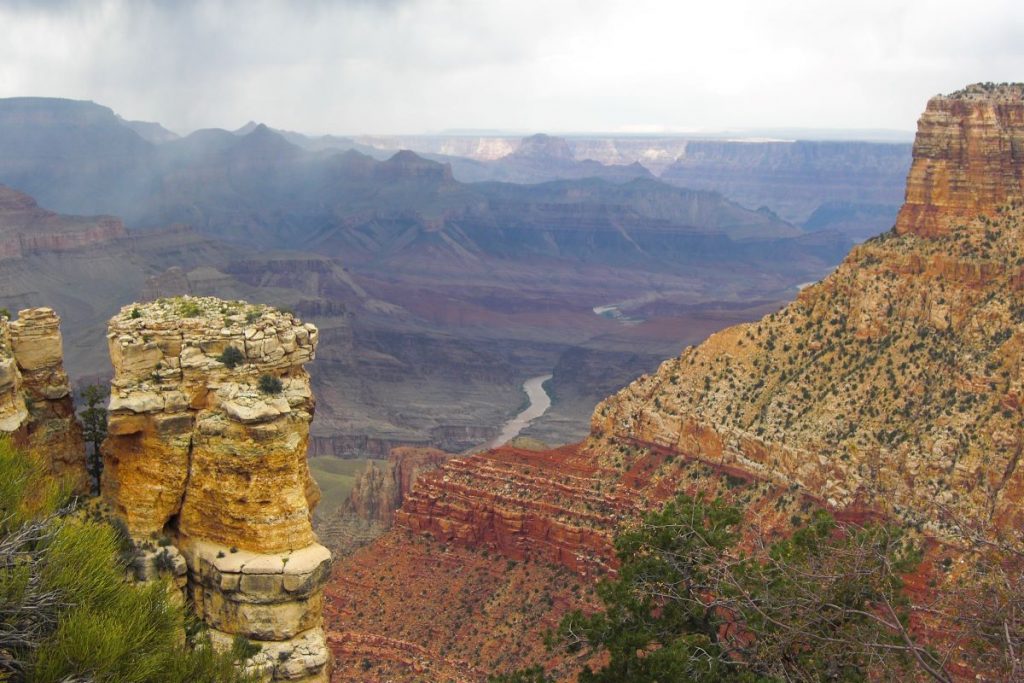
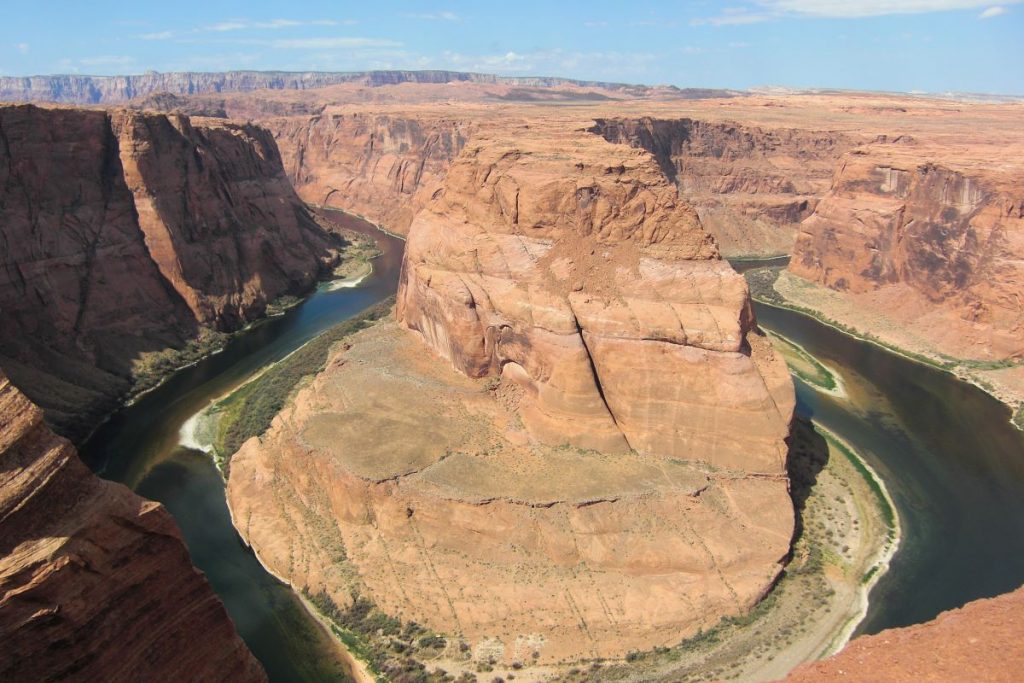
This is an interesting read about traveling and it’s one of my favorite to do. Planning to make it my way of living
Thank you for your comment. I think as long as we travel in a balanced and sustainable way, and that we respect the planet in our daily lifestyle, travel is a great experience that brings people together. And even though we can now exchange through social media and the Internet, it doesn’t have nothing to do with real live connections. Plus, the Internet has a similar negative impact in terms of CO2 emissions. Even if the scale is different, everything we do will emit CO2. And the best way is to look at the solutions. But not only with technology. The best way is to mimic nature. Things like agroforestry or regenerative agriculture has a huge potential to stock the carbon we emit. But we have to do it step by step, not like Sri Lanka did. In India they are doing it in one province and they did it very slowly, and it is going very well. Farmers who transitioned to regenerative agriculture are making the double or the triple of the money they used to do with conventional agriculture and don’t need to use chemicals and machinery anymore. When we travel we should support those initiatives and try to eat local and organic products. That’s a better way to offsetting than buying carbon credits. We should try to support the local stores and restaurants who serve this kind of food. If you know any good address, don’t hesitate to add it to our address book!
I love your detailed article! I wish we had more speed trains because my husband hates flying. And also I like your point about shopping local to help and explore our own place.
thank you for your comment! I love the train too. I think we have to put pressure on our governments. The story of how public transport, including trains, was abandoned in the US is crazy. Basically it was Ford. He wanted to sell more cars. And that’s how it went… If one man was able to shift the whole country transport infrastructure, maybe millions of us can do too. That’s what I hope for the future of our planet and children…
I am a fan of traveling who travels to different new places every month and I truly loved the post. Thanks for sharing!
you’re welcome! I hope the post also helped you find more balanced and sustainable ways to travel cause travelling to new places every month is great as long as we choose low carbon types of transportation and don’t have an impact on the locals nor the environment 🙂
Pingback: Is vegan food suitable for all? How to eat in a more sustainable way? - Planeta Sana®
Hi, I understand your good intentions but your comments about local travel and your generalization that people in developing countries Asia, Africa and Latin America have no money to eat only shows your lack of knowledge of these regions and it’s a gross generalization. In any case there are people who have no money to eat in the US and Europe too, so there are food stamps and social security programs. Yes there is poverty in developing economies but to generalize and say that people in Asia, Africa and Latin America have no money to eat and can’t travel locally is not accurate. You shared to lengths about being an expat, I was one myself is the same with people within their country. With this I mean sometimes people from smaller towns move to the larger cities to study and work and then go back to their town to visit their older relatives (local travel). Also people who can’t travel abroad choose local tourism many times by bus which is a great travel alternative to international air flights. I hope you are open to expanding your understanding, I appreciate your good intentions with this article.
Hi, thank you for reading my article — and for taking the time to share your thoughts. I really appreciate your comment.
Yes, I agree with you: not every country in Asia, Africa or South America is a poor country. That’s exactly why I used the term “developing countries” — which, just to clarify, is an official and commonly used classification by international institutions to describe countries with lower average income levels and human development indicators. I was referring specifically to those facing significant economic challenges, not entire continents or regions.
I didn’t mention it in the article, but take China for example — although many of us wouldn’t consider it a developing country anymore, it still officially defines itself that way in many global forums and continues to benefit from certain types of support under that label. This shows how nuanced and even political these definitions can be.
My main point was this: in some countries, especially those with widespread poverty and limited social support systems, only a small minority of people have the financial means to travel for leisure and support a strong domestic tourism sector. I mentioned Madagascar as an example — my mother is from there, and I’ve seen firsthand how dependent the tourism economy is on international visitors. In contrast, in many Western countries, a much larger middle class exists, making it more realistic to imagine tourism being sustained through national demand alone.
Of course, poverty exists in all parts of the world — including where I live, in Spain. But the viability of replacing international tourism with national tourism depends heavily on the presence of a sizable population with disposable income. In countries where this doesn’t exist, removing international travel altogether could have devastating effects on communities already struggling economically.
I’m explaining all of this because I’ve seen more and more environmentalist voices calling for the complete elimination of air travel as a way to fight climate change. While I share their concerns about the climate crisis, I don’t believe such an extreme approach is fair or practical — especially for countries that rely on international tourism to survive.
As for the point you made about internal travel — yes, of course, people move within their countries for work or study, and many travel home to visit family. But as you mentioned, that’s usually done by train or bus, which is far more accessible than the international travel needed by expats who live thousands of kilometers away from their families.
I hope this helps clarify what I meant. Thank you again for taking the time to share your thoughts — I really value this kind of dialogue. May I ask where you’re from, and where you worked as an expat? I’d love to hear more about your experience.